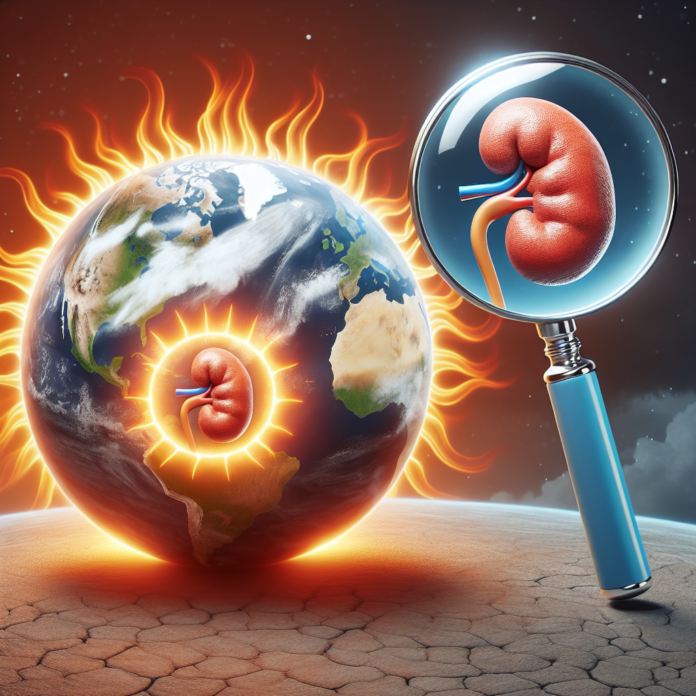Extreme Heat from Climate Crisis Increases Kidney Disease Risk
Extreme Heat Due to Climate Crisis Puts People at Greater Risk of Kidney Disease
The Guardian US
The increasing frequency and severity of extreme heat events, driven by the climate crisis, is emerging as a significant public health concern. Among the myriad of health issues exacerbated by rising temperatures, kidney disease is becoming an alarmingly prevalent risk.
Understanding the Connection Between Heat and Kidney Health
Extreme heat can lead to dehydration, which in turn can cause acute kidney injury (AKI). Prolonged exposure to high temperatures forces the kidneys to work harder to regulate body fluids and electrolytes. This excessive strain can result in damage to kidney tissues, leading to both acute and chronic kidney conditions.
Vulnerable Populations at Higher Risk
Certain populations are more vulnerable to heat-induced kidney disease. These include outdoor workers, athletes, the elderly, and individuals with pre-existing health conditions such as diabetes and hypertension. Additionally, low-income communities often face greater exposure to extreme heat due to inadequate housing and limited access to air conditioning, further exacerbating their risk.
Global Implications and Regional Hotspots
The impact of extreme heat on kidney health is not confined to any single region. Countries with tropical and arid climates are particularly affected, but even temperate zones are witnessing increasing cases as global temperatures rise. Regions such as South Asia, the Middle East, and parts of the United States have been identified as hotspots for heat-related kidney disease.
Preventative Measures and Public Health Strategies
Addressing this growing health crisis requires a multifaceted approach. Public health strategies should include raising awareness about the importance of hydration and recognizing the early signs of kidney distress. Governments and organizations must also invest in infrastructure that mitigates heat exposure, such as cooling centers and urban greening initiatives.
Furthermore, policy interventions aimed at reducing greenhouse gas emissions are essential to curb the long-term effects of climate change. By addressing the root cause, we can hope to mitigate future health risks associated with extreme heat.
Research and Future Directions
Ongoing research is crucial to understanding the full extent of the relationship between extreme heat and kidney disease. Studies are needed to develop targeted interventions and to identify genetic or biological factors that may influence susceptibility. Collaborative efforts between climate scientists, healthcare providers, and policymakers will be key in developing effective strategies to protect public health in a warming world.
In conclusion, the climate crisis is not just an environmental issue but a profound public health challenge. As extreme heat events become more common, the risk of kidney disease rises, highlighting the urgent need for comprehensive and proactive measures to safeguard vulnerable populations and mitigate long-term impacts.
